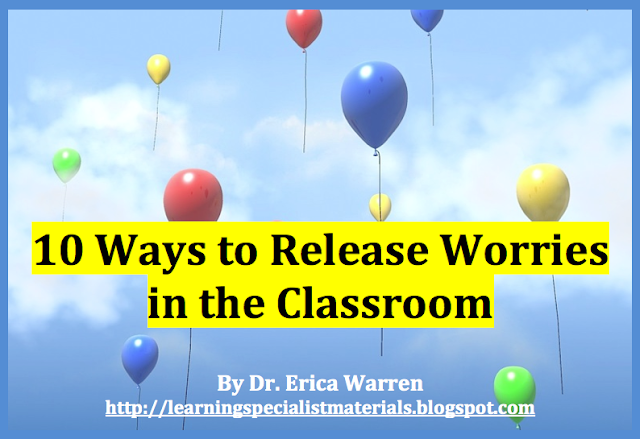This week I wanted to tell you about my online store, Good Sensory Learning. I’m Dr. Erica Warren, and I established this site so I could share all the materials that I have created over the last 20+ years as a learning specialist and educational therapist. When I first began my private practice, Learning to Learn, I had great difficulty finding fun and multisensory materials for my students that were effective and engaging. So back in 2005, I made it my mission to design and distribute high-end, remedial products as well as memorable, motivating lessons that bring delight to learning. If you would like to try a free sampling of my activities , CLICK HERE . How Are the Products Organized at Good Sensory Learning? You can download my Free Printable Catalog or you can browse the site using the grey “search all products” bar in the top right of any page with keywords such as dyslexia, working memory, and executive functioning. What’s more, drop down menus in the red banner allow you t
With stringent common core demands, burdensome homework, and competition for high test grades, many students spend a lot of time worrying about school performance. However, many of these children do not know how to manage stress, and it can lead to sleepless nights, panic attacks, temper tantrums, health concerns, a case of learned helplessness, and even clinical levels of anxiety and depression. So, what can we do to help children manage the academic load while keeping a level head?
Help your Students Understand the Negative Side Effects of Worrying:- Worrying Interferes with Learning and Makes it Hard to Concentrate:
- If students are worrying, they are easily distracted and will likely miss important directions and academic content. Here is a great NY Times article on this: Click Here
- Worrying has a Negative Impact on Memory:
- Research suggests that stress and worries make it difficult for the brain to access memories. In fact, prolonged stress can cause an excessive amount of cortisol production in the brain which can even shrink the hippocampus - the memory center of the brain. To learn more about this go to: Click Here
- Worrying also Makes us Stressed, Unhappy and Unhealthy:
- Negative emotions can harm the body and lead to illnesses and diseases. Harvard News and WebMD offers more on this.
 |
| Click on image to learn more |
- Integrate Movement into the Classroom: When your students' attention wanes, offer short kinesthetic brain breaks. Also, encourage your students to get involved in sports and other physical activities. Exercise has been shown to reduce stress. In fact, children that exercise regularly are better able to cope with stress. Come read more in this NY Times article.
- Manage the Homework Load Across Classes: Be sure to communicate with other teachers so, each day, homework loads are manageable for your students.
- Give your Students “Personal Days” with No Homework: Once a week, offer your students a day with no homework. Brainstorm with them how they can best use this free time.
- Create a Worry Box: Many students are not able to share their worries because they are embarrassed or they are afraid that their fears will be criticized. If you offer your students a worry box, where they can write down and submit their concerns, it will allow you to address the issues individually or as a class.
- Teach Time Management Skills: Break long assignments into manageable chunks with clear expectations and deadlines. Also, discuss time management with your students and brainstorm with them ways to prepare for assignments, projects and test in advance.
- Offer Short Mindful Meditations: Before tests and other stressful events, offer your students the option of participating in a short mindful meditation. Here are two free meditations offered on YouTube that focus on stress relief: Meditation 1 Meditation 2.
- Offer an Organized System for Catch-up: When a student misses a day or more of school, it can be difficult for them to manage the work load when they return. As a result, create a system where missed content, handouts, class notes and homework can be available on the internet, through email or attainable from a peer or advisor.
- Return Assignments and Tests ASAP: After your students turn in homework, classwork and completed tests, be sure to return the graded material as soon as possible. Also, offer them the opportunity to learn from their mistakes by providing comprehensive comments or setting up a one-on-one session with you or support staff.
- Provide Extra Credit for Test Corrections: Encourage your students to learn from their mistakes by offering extra credit or additional points on their test grade for completing comprehensive test corrections.
- Set an Example: Students can learn how to let go of their worries if you too exhibit this behavior. Think aloud and let them hear how you can take a stressful situation and manage your own worries.
If you have any other ideas, I would love to hear your thoughts!
Cheers, Dr. Erica Warren
Dr. Erica Warren is the author, illustrator, and publisher of multisensory educational materials at Good Sensory Learning and Dyslexia Materials. She is also the director of Learning to Learn and Learning Specialist Courses.
· Blog: https://learningspecialistmaterials.blogspot.com/
· YouTube Channel: https://www.youtube.com/user/warrenerica1
· Podcast: https://godyslexia.com/
· Store: http://www.Goodsensorylearning.com/ & www.dyslexiamaterials.com
· Courses: http://www.learningspecialistcourses.com/
· Newsletter Sign-up: https://app.convertkit.com/landing_pages/69400
Dr. Erica Warren is the author, illustrator, and publisher of multisensory educational materials at Good Sensory Learning and Dyslexia Materials. She is also the director of Learning to Learn and Learning Specialist Courses.
· Blog: https://learningspecialistmaterials.blogspot.com/
· YouTube Channel: https://www.youtube.com/user/warrenerica1
· Podcast: https://godyslexia.com/
· Store: http://www.Goodsensorylearning.com/ & www.dyslexiamaterials.com
· Courses: http://www.learningspecialistcourses.com/
· Newsletter Sign-up: https://app.convertkit.com/landing_pages/69400



Comments
Post a Comment